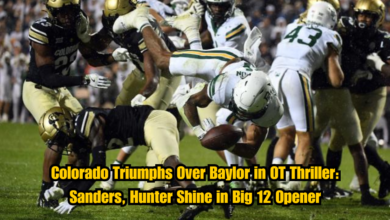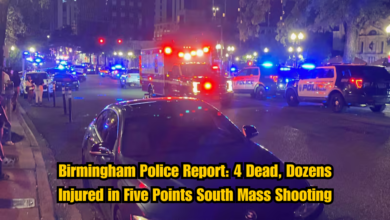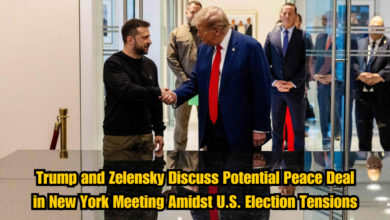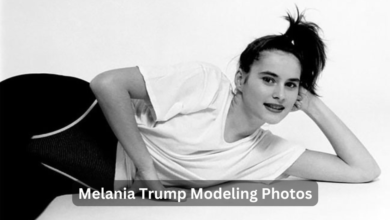Donald Trump’s College Football Spectacle in Alabama: From Campaign Rhetoric to Adulation on the Gridiron
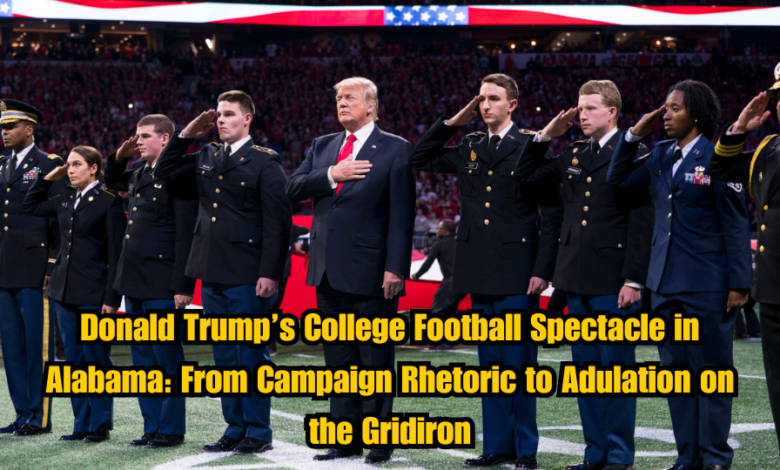
On a sunny Saturday afternoon, Donald Trump delivered another fiery speech in Wisconsin as part of his presidential campaign, railing against immigrants with his characteristic fervor. By the evening, the scene had shifted dramatically. Instead of political rallies, Trump was greeted by a rapturous crowd of college football fans in Alabama as he joined them to watch the highly anticipated showdown between the University of Alabama’s No. 4 Crimson Tide and the No. 2 Georgia Bulldogs. The transition from dark campaign rhetoric to enthusiastic celebration among Southern football fans highlighted the unique duality of Trump’s political appeal.
From Political Rally to College Football Extravaganza
Earlier in the day, Trump addressed his supporters in the Rust Belt, speaking forcefully about immigration issues and the supposed threats posed by migrants. His claims in Springfield, Ohio, were inflammatory, with the former president alleging that Haitian immigrants were “stealing and eating dogs and cats” from local communities — a statement that has been widely debunked. “You’re going to lose your culture. You’re going to lose your country,” Trump warned.
But several hundred miles south, in Tuscaloosa, Alabama, Trump’s message had been turned into a twisted rallying cry for football fans awaiting his arrival at Bryant-Denny Stadium. Many in the crowd wore buttons and stickers bearing slogans like “They’re eating the Dawgs!” — a reference that meshed his aggressive rhetoric with the lighthearted competitiveness of a football rivalry. Throughout the day, chants of “Trump! Trump! Trump!” echoed across the university campus, foreshadowing the reception Trump would receive during the game.
Adoration from College Football Fans: Trump Takes Center Stage
As Trump settled into a 40-yard-line suite hosted by an affluent member of his Mar-a-Lago club, the excitement in the stadium was palpable. Alabama fans, known for their intense dedication, erupted in cheers when the former president’s presence was announced early in the second quarter. Positioned behind a layer of bulletproof glass — a reminder of the dangers he’s faced, including two assassination attempts — Trump waved and pumped his fist at the capacity crowd of more than 100,000, most of whom were dressed in the signature crimson of the University of Alabama.
It was a moment that contrasted sharply with his earlier, more somber campaign events. Here, Trump’s populist nationalism morphed into a form of optimistic patriotism, a rallying symbol for a crowd that seemed more interested in football than politics. For his supporters, the spectacle was a confirmation of Trump’s claim that he represents an authentic America, one that is often at odds with the broader political establishment.
The Cultural Impact: Trump as a Pop Culture Icon
While Trump’s political opponents accuse him of spreading fear and misinformation, his supporters see something different. To them, Trump embodies a larger-than-life figure who “stands up” against a broken political system. This was echoed by Shane Walsh, a 52-year-old businessman from Texas, who had traveled to Alabama to support both his team and his candidate. “I don’t necessarily like him as a person,” Walsh admitted, “but Trump is not weak. He makes you believe that if he’s in charge, everything will be all right.”
Walsh had decorated his tent on the university quadrangle with a Trump 2024 flag and a professionally printed sign featuring the phrase, “They’re eating the Dawgs.” The idea came from a meme he’d shown his wife, but the slogan was more than just a joke. It encapsulated the blend of political bravado and sports enthusiasm that makes Trump’s presence at such events so captivating to his base.
The mix of satire, sport, and politics was also on display when Katie Yates, a 47-year-old Alabama native, proudly paraded a life-sized cutout of the former president around the campus. For Yates, who confessed that she “could not understand how every American was not” a Trump fan, Trump’s visit to the stadium was a validation of her unwavering support. “I’m such a Trump fan,” she said, noting that even Elvis — a mainstay at her family’s tailgates — would be proud to share the spotlight with the former president.
A Politicized Game Day: Reactions from Both Sides
Despite the overwhelmingly positive reception from Alabama fans, not everyone on campus was thrilled by Trump’s visit. Braden Vick, president of Alabama’s College Democrats, voiced his frustration, arguing that Trump’s appearance overshadowed what should have been a purely athletic event. “We have this great atmosphere for a top-five game,” Vick said, “and it’s a shame that Donald Trump has to try to ruin it with his selfishness.”
Vick pointed out that while Alabama is a reliably conservative state, the university precincts had voted differently in past elections, with Democratic candidates like Joe Biden vastly outperforming their statewide totals. For many students, Trump’s presence was an uncomfortable reminder of the political divisions that permeate even seemingly apolitical spaces like college football.
Trump’s Sporting History: A Longstanding Love for the Game
Trump’s affinity for sports, and football in particular, is well-known. In the 1980s, he attempted to buy an NFL team and eventually launched a competing league instead. His interest in college football has been equally consistent. As president, he attended several high-profile games, including the 2018 national championship game between Alabama and Georgia. Saturday’s appearance, however, was not just about his love for the sport — it was a carefully calculated move in a broader political strategy.
Trump’s guest for the evening, Alabama businessman Ric Mayers Jr., emphasized that the visit was meant to showcase the former president’s enduring popularity. Mayers, a Mar-a-Lago member and avid Trump supporter, said he invited Trump to experience a “warm welcome” from a friendly crowd. Alabama Senators Katie Britt and Tommy Tuberville, both staunch Trump allies, joined the festivities, as did musicians Kid Rock and Hank Williams Jr., adding to the sense that this was as much a political rally as a sporting event.
Security on High Alert: Protecting the Former President
Trump’s presence also meant a heightened security presence around the stadium. Fencing and metal detectors lined the perimeter, while TSA agents conducted screenings akin to those at major airports. The tight security measures did not dampen the spirits of Trump’s supporters, however. Fans eagerly waved their crimson-and-white pompoms and craned their necks for a glimpse of the man they believe still represents the future of America.
Even the Georgia fans in attendance, rooting for a team favored by Vegas oddsmakers, seemed to accept Trump’s presence as a spectacle to be enjoyed rather than protested. However, a few voices of dissent did break through. A smattering of boos and even a few extended middle fingers could be seen when Trump appeared on the stadium’s video screens. Yet, these signs of discontent were quickly drowned out by a chorus of cheers and chants of “USA! USA! USA!”
Trump’s Unlikely Role as a Sports Fan Favorite
For Trump, attending the game was an opportunity to engage with his base in a way that no traditional campaign stop could. In a region where college football reigns supreme, Trump positioned himself as both a political leader and a cultural icon. His tie, notably not crimson but Georgia red, seemed almost a playful nod to the rivalry on the field — a subtle reminder that even in enemy territory, he remains the star of the show.
The evening ended with Alabama securing a resounding victory, much to the delight of the crimson-clad fans. But for Trump, the win was more than just about football. It was a testament to his ability to turn even the most unlikely venues into stages for his political theatre — and a reminder that, in the Deep South, the lines between sports and politics are often blurred beyond recognition.
